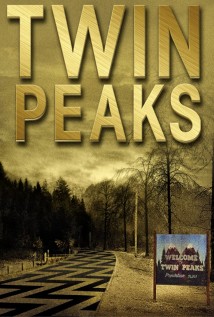
An idiosyncratic FBI agent investigates the murder of a young woman in the even more idiosyncratic town of Twin Peaks.
Stars: Kyle MacLachlan, Michael Ontkean and Mädchen Amick
Full Cast: Dana Ashbrook, Richard Beymer, Lara Flynn Boyle, Sherilyn Fenn, Warren Frost, Peggy Lipton, James Marshall, Everett McGill, Jack Nance, Joan Chen, Kimmy Robertson, Michael Horse
Episode Guide
Season 3
September 3, 2017Episode 18 Part 18
September 3, 2017Episode 18 Part 18
September 3, 2017Episode 17 Part 17
September 3, 2017Episode 17 Part 17
August 27, 2017Episode 16 Part 16
August 27, 2017Episode 16 Part 16
August 20, 2017Episode 15 Part 15
August 20, 2017Episode 15 Part 15
August 13, 2017Episode 14 Part 14
August 13, 2017Episode 14 Part 14
August 6, 2017Episode 13 Part 13
August 6, 2017Episode 13 Part 13
July 30, 2017Episode 12 Part 12
July 30, 2017Episode 12 Part 12
July 23, 2017Episode 11 Part 11
July 23, 2017Episode 11 Part 11
July 16, 2017Episode 10 Part 10
July 16, 2017Episode 10 Part 10
Season 2
Season 1
Best Twin Peaks Episodes
Top 20 (Ranked)
November 10, 1990 9.4 4918 votesS2E7 Lonely Souls
9.4 4918 votesS2E7 Lonely Souls
June 10, 1991 9.3 4872 votesS2E22 Beyond Life and Death
9.3 4872 votesS2E22 Beyond Life and Death
December 1, 1990 9.3 4215 votesS2E9 Arbitrary Law
9.3 4215 votesS2E9 Arbitrary Law
May 23, 1990 9.1 4469 votesS1E8 The Last Evening
9.1 4469 votesS1E8 The Last Evening
April 19, 1990 9.0 5230 votesS1E3 Zen, or the Skill to Catch a Killer
9.0 5230 votesS1E3 Zen, or the Skill to Catch a Killer
September 30, 1990 9.0 4379 votesS2E1 May the Giant Be with You
9.0 4379 votesS2E1 May the Giant Be with You
May 17, 1990 8.6 4009 votesS1E7 Realization Time
8.6 4009 votesS1E7 Realization Time
November 17, 1990 8.6 3416 votesS2E8 Drive with a Dead Girl
8.6 3416 votesS2E8 Drive with a Dead Girl
June 10, 1991 8.6 3121 votesS2E21 Miss Twin Peaks
8.6 3121 votesS2E21 Miss Twin Peaks
May 10, 1990 8.5 4106 votesS1E6 Cooper's Dreams
8.5 4106 votesS1E6 Cooper's Dreams
April 12, 1990 8.4 4936 votesS1E2 Traces to Nowhere
8.4 4936 votesS1E2 Traces to Nowhere
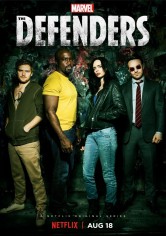
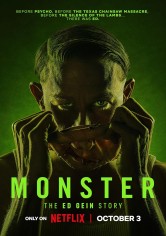
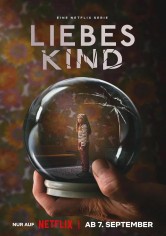
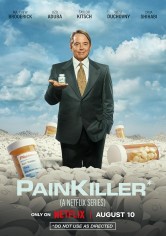
User Reviews
Watchseries; Twin Peaks, much like David Lynch's own Mulholland Drive and Blue Velvet, among other great works of his, examines the main notion, idea and scope behind what it is meant to conventionally be. Twin Peaks is a murder-mystery show, yes, but this is not even scratching the surface as an identifying measure to say what the show is. Another explanation, as if it were possible, is that it is ABOUT mystery, and in the case of murder of life. That might seem a little too preachy or didactic, but as one goes deeper into the series, and deeper into the Black Lodge, and deeper into every single backwards-ass character on the show, a pattern emerges. Abstractions are Lynch's life blood, and even in the weirdest moments of the show he and Mark Frost, along with their writers and directors, make Twin Peaks a collection of abstractions, but at the same time making them as much as possibly within reach of human emotion. It's one of the rare times that the kind of artful penetration into what is essentially good, essentially evil, and even essentially gray-in-area in human beings that usually presides in cinema is let out, practically in each episode, like some kind of feverish worm that crawls in your mind and won't stop...Maybe it's the owls.
But aside from the many, many, many layers to the show, to the dynamics between FBI Agent Cooper (Kyle MacLaughlin in his most recognizable role) and those he relates to everyday as well as in his dreams and Tibetan-inspired visions (the classic being the quintessential dream with the garbled-talking little-person), the teenagers with their own plots of neuroses and dramas and higher ambitions and darker demons, as well as those you'd least expect- the quiet ones- not to mention the ones residing on top in the little crevices we dare not usually seek out in small towns (i.e. the prostitution ring fronted by Mr. Horne), it's just a damn-well entertaining program. It's a superlative crossbreeding of the kind of inimitable melodrama that has the immediate feel of a soap-opera, but far more intelligent in the scope of acting and writing, and the classic absurdities that come up in the best of Lynch's work. Meaning that it will work, more or less, for two different audiences.
Fans of Lynch's will drink it up like damn-good coffee the endless quirks that become commonplace, where characters in any other show would get little no-note roles like the secretary Lucy, or the psychologist Jacobi, or even a classic nut-bar like the Log-Lady, who has the claim that the log is really her dead husband. This, plus enough dream sequences, elaborate lighting and set-design schemes, and the outrageous characterizations make it vintage Lynch/Frost work. For the other crowd, those who don't usually watch Lynch's movies and are more of just the regular TV potatoes, the series has an appeal for its more genuine side, the one that stays true to the ideas and dramatic tensions behind the characters. Even when it gets too weird, and especially in season 2 the feeling starts to get stronger and more nagging, one can't really totally pull away from it, like as if some old man with an old storybook was reading out something almost certifiable, but intriguing all the same. Laura Palmer's death brings out what her life was all about, and really what anyone connected to her is all about; there's an appeal to find out what's behind the lives of others, especially when it balances out between light and dark tendencies.
On top of this, the acting is par for
Twin Peaks, much like David Lynch's own Mulholland Drive and Blue Velvet, among other great works of his, examines the main notion, idea and scope behind what it is meant to conventionally be. Twin Peaks is a murder-mystery show, yes, but this is not even scratching the surface as an identifying measure to say what the show is. Another explanation, as if it were possible, is that it is ABOUT mystery, and in the case of murder of life. That might seem a little too preachy or didactic, but as one goes deeper into the series, and deeper into the Black Lodge, and deeper into every single backwards-ass character on the show, a pattern emerges. Abstractions are Lynch's life blood, and even in the weirdest moments of the show he and Mark Frost, along with their writers and directors, make Twin Peaks a collection of abstractions, but at the same time making them as much as possibly within reach of human emotion. It's one of the rare times that the kind of artful penetration into what is essentially good, essentially evil, and even essentially gray-in-area in human beings that usually presides in cinema is let out, practically in each episode, like some kind of feverish worm that crawls in your mind and won't stop...Maybe it's the owls.
But aside from the many, many, many layers to the show, to the dynamics between FBI Agent Cooper (Kyle MacLaughlin in his most recognizable role) and those he relates to everyday as well as in his dreams and Tibetan-inspired visions (the classic being the quintessential dream with the garbled-talking little-person), the teenagers with their own plots of neuroses and dramas and higher ambitions and darker demons, as well as those you'd least expect- the quiet ones- not to mention the ones residing on top in the little crevices we dare not usually seek out in small towns (i.e. the prostitution ring fronted by Mr. Horne), it's just a damn-well entertaining program. It's a superlative crossbreeding of the kind of inimitable melodrama that has the immediate feel of a soap-opera, but far more intelligent in the scope of acting and writing, and the classic absurdities that come up in the best of Lynch's work. Meaning that it will work, more or less, for two different audiences.
Fans of Lynch's will drink it up like damn-good coffee the endless quirks that become commonplace, where characters in any other show would get little no-note roles like the secretary Lucy, or the psychologist Jacobi, or even a classic nut-bar like the Log-Lady, who has the claim that the log is really her dead husband. This, plus enough dream sequences, elaborate lighting and set-design schemes, and the outrageous characterizations make it vintage Lynch/Frost work. For the other crowd, those who don't usually watch Lynch's movies and are more of just the regular TV potatoes, the series has an appeal for its more genuine side, the one that stays true to the ideas and dramatic tensions behind the characters. Even when it gets too weird, and especially in season 2 the feeling starts to get stronger and more nagging, one can't really totally pull away from it, like as if some old man with an old storybook was reading out something almost certifiable, but intriguing all the same. Laura Palmer's death brings out what her life was all about, and really what anyone connected to her is all about; there's an appeal to find out what's behind the lives of others, especially when it balances out between light and dark tendencies.
On top of this, the acting is par for
Twin Peaks watchseries. The opening credits and music grabbed me right away. That sad, cool, reflective music. The log being cut in the mill. The bird.
This is a show that you know, as you are watching it, that it is special and destined to become a classic. What a wonderful memory. One of my favorite moments in the first episode is Andy crying, and later telling the girl not to tell the sheriff. It really brought humanity to Laura's death.
Can't wait to one day own the whole series on DVD, and one summer night, start watching the episodes one by one.
Another amazing aspect of the opening episode is the many types of characters and settings involved, just within the town of Twin Peaks. The school, the lodge, the sheriff office, the lake, the railroad tracks. It was almost as if several shows and genres were evident in one episode. Something for everyone. But it still tied together so amazingly.
I have to admit when I first watched the pilot episode of Twin Peaks a couple of years ago, I wasn't sure what to think. I knew about David Lynch, having recently seen Blue Velvet, and I knew he was a director that was on the outlandish side. I borrowed the rest of the series from a friend, and after I watched the first 3 or 4 episodes, I was still scratching my head. I thought the murder premise was well done but I kept asking myself "why are these characters so strange?"
However, as I got more into the series, I found myself obsessively hooked. The series, in it's own ominous way, was extremely funny and there were so many great one liners ("that's a damn good cup of coffee") and the characters kept you second guessing. Though some characters were obviously villains, others had intentions that were often indistinguishable.
As I relentlessly watched the show over a three week period, I found myself laughing out loud and being disturbed at the same time. Ben Horne's meltdown is one of the funniest things I have ever seen in any TV series, I chuckle just thinking about it. Only David Lynch could think of something that was so eccentric and funny at the same time.
So in the end, I must say I found this show endlessly amusing. Almost every person on the show has their own idiosyncrasy, appearances by future stars like Heather Graham and David Duchovny injected humor and depth into the show, and heck, there was a sheriff named Harry S Truman, what else do you need?
I am glad to see the first season is on DVD, I can't wait until the rest is released. I wish this show had been on much longer but it is such a bizarre show that I can understand why mainstream America did not understand it. I wouldn't recommend this show to anyone that likes TV shows which are light-hearted or straightforward. Be warned, the final episode is completely bizarre, and not necessarily funny.
As a whole, the show has a very alien feel to it and may chase many people away, but if you understand David Lynch's warped sense of humor and can see the sheer lunacy of the show, you will find it endlessly entertaining.
Nowadays it is commonly accepted that American television is becoming better than movies, with edgier stories and more complex characters, both in mainstream (CSI, 24, Lost) and cable shows (The Sopranos, Six Feet Under, Deadwood). Twenty years ago, on the other hand, such a thing was unthinkable, at least until Twin Peaks aired.
Created by David Lynch and Mark Frost, the series takes its name from a small American town where a grisly murder has been committed. The victim is local beauty Laura Palmer (Sheryl Lee), a girl who seemed to have a perfectly normal life, only it turns out that's not the case: she had a lot of secrets, and in one of them lies the key to finding her killer. That assignment is given to Special FBI Agent Dale Cooper (Lynch regular Kyle MacLachlan), who quickly earns the trust and friendship of Sheriff Truman (Michael Ontkean) and the rest of Twin Peaks'inhabitants thanks to his extraordinary deductive methods and fascination for the calm and peace around him. And he is going to need all the help he can get, as Laura's murder is just one of the many odd things causing trouble in the heavenly surroundings: there's Benjamin Horne (Richard Beymer) and his dangerous connection with a casino/brothel known as One-Eyed Jack's; there's his daughter Audrey (Sherilyn Fenn), whose interest in Agent Cooper might put her in a worse situation than she thinks; there's the dispute over the Packard sawmill between Catherine Martell (Piper Laurie) and Josie Packard (Joan Chen); and there are the bizarre creatures who populate Cooper's dreams, people like The Man From Another Place (a backwards-talking dwarf, played by Michael J. Anderson) or the terrifying Bob (Frank Silva), suggesting that most of the events in Twin Peaks may not have a rational explanation.
Back in 1990, a series like this had never been done before, so its success was a little unexpected (sadly, ratings dropped during the second season, leading to the show's premature cancellation). Now it can be seen as an anticipation of that great TV creation that is HBO: the dead interacting with the living (Six Feet Under), ambiguous characters and even more ambiguous relationships between them (Deadwood), a consistent balance between moving and funny, beautiful and shocking (The Sopranos), the seeds of all those elements can be found in Twin Peaks, a show that didn't hesitate when it came to playing with the format or crossing the line in terms of mature content (death, drug abuse, rape) or on-screen violence (the ending of Episode 8, where one of the villains is shown at the peak of his abilities, is still one of the most audacious scenes ever shown on mainstream television). More than any other series, it represents the seamless merger of big and small screen, a fact that is underlined by Lynch's decision to further explore the story in a feature film after the last episode had aired. Fans of the visionary filmmaker will find plenty of his recurring themes, some a direct reference to his previous works (the ugliness lying underneath the apparent perfection, as seen in Blue Velvet), others a hint of things to come (the duality of Lost Highway and Mulholland Drive, here embodied by Lee, who plays both the deceased Laura and her cousin).
As always with the Eraserhead director, the acting is exceptional: MacLachlan and Lee are the standouts, the former playing his best role to date, a cunning combination of palpable vulnerability and impeccable wit, the latter shining with a double performance that shoul
Stunning and explosive, completely misunderstood by many when it ran from 1990-1991 and definitely trail-blazing for the art of television production, "Twin Peaks" is one of those could-have-been, should-have-been television series that ended up being remarkable anyway. A teenage girl (Sheryl Lee) is murdered. A strange police detective (Kyle MacLachlan) is brought in to solve the mystery as the local police just cannot cope with the crime. Strange situations continue to pop up all over the landscape of the titled Pacific Northwestern town though and it becomes sadly apparent that the crime will likely never be solved. Side-stories galore confuse and intrigue and the viewer is left wondering, "Does this have anything to do with the initial crime?". Then just when you think the puzzle is about solved, total chaos strikes with whacked dream sequences that make you question your own sanity. What is really happening in the town and do we really want to know or are we happier letting the mystery suck us in? "Twin Peaks" was created by David Lynch (arguably the finest American film-maker, along with Martin Scorsese, living today) and over two very abbreviated seasons (only 29 total episodes) television reached an age that may never be experienced again. At the time many (perhaps myself included) did not know what to make of the show and even more panned it completely. The fact that the series did not really end the way it should have is sad, but in another way it just adds to the legends and myths involved here. There were eight writers on this series and a mind-blowing 15 different directors (Lynch did some of the work and even Diane Keaton got an opportunity to add to the program). Performers like Ray Wise, Piper Laurie, Joan Chen, Lara Flynn Boyle, Sherilyn Fenn, Russ Tamblyn and Madchen Amick appear, disappear and re-appear so frequently that you become confused as to what their roles in the show truly are. Monumental, gigantic, legendary, interesting, dominant and definitely thought-provoking, "Twin Peaks" is one of those television shows that amazes and dazzles with its highly unique brand of commentary. Followed by a theatrical movie ("Twin Peaks: Fire Walk With Me") in 1992 that was made to answer the questions presented throughout the program, it was also sadly misunderstood by most in the viewing public (even being rubbished by some who loved the series). A real gem in the history of television art. 5 stars out of 5.
This is one of the shows that I started watching because many people, whose opinions I valued, stated, repeatedly, that I "absolutely must see this." Let me say that I was pretty much hooked from the first scene when they discover the body. The one deputy crying at the body was both touching and kind of funny. It perfectly introduced the entire series which is serious and ridiculous all at once. There is so much to talk about this incredible series which burned too bright to burn for very long.
For starters, Agent Cooper is the single greatest character ever captured on film (go ahead, try and think of a better one). He's brilliant, genuinely caring, incredibly funny, exuberant to the nth degree, unbelievably likable, but also with a sordid past which haunts him. Nobody, but nobody, could have delivered the pie and coffee compliments with so much gusto.
However, he is just the brightest star in the sky. There are so many crazy, yet somehow believable characters that grace Lynch's universe. The swift descent of Ben Horn into madness is sad, pathetic, surreal and hilarious. No other series would have dared contain a man believing that he was General Lee commanding the south at Gettysburg (it also provides the funniest line from the show, when Audrey Horn is talking to his psychiatrist and he remarks that "What he (Ben Horn) needs now is our sympathy, understanding and a confederate victory."). All of the characters create a amazing tapestry where one is genuinely anticipating which character is going to lose it somehow (but one never anticipates correctly). In this reviewers opinion, the plot takes a backseat to the characters which are too strange, or too ordinary but never dull, to exist in any other show anywhere (minus James, who gets irritating right when he starts singing and never stops). Fantastic actors all around with more career launching cameos than any show or movie ever.
Sadly, the second season is not as good as the first, plot-wise, but still is as quirky and entertaining with an unbelievable ending to the series. Many have criticized the show for being excessively intellectual, but I never found the show pedantic or hopelessly cryptic. Rather, it seemed as though David Lynch just decided to employ every weird idea that popped into his febrile mind for the sheer joy of it.
To finish, one needs to watch this show. It's not uniformly brilliant and sometimes just plain weird, but always rewarding and truly one of the landmarks of American television. Go get a nice piece of cherry pie, a cup of coffee, take four days off work and start watching it.